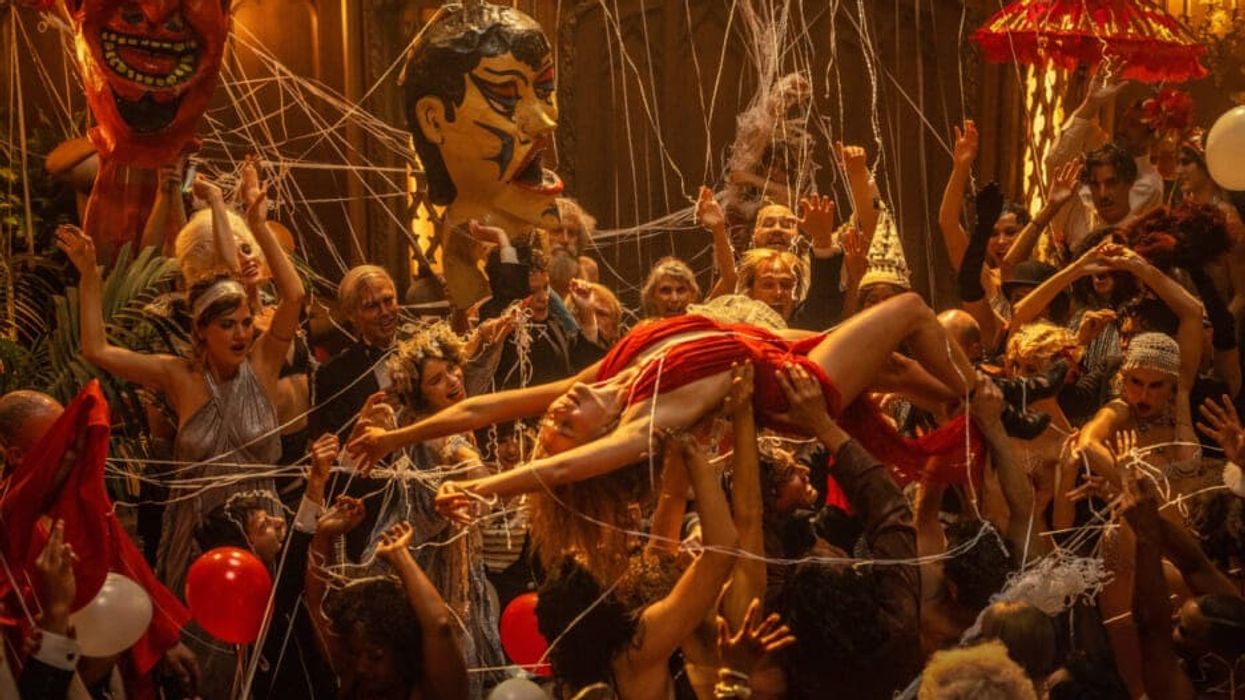Why Damien Chazelle Believes 'Babylon' Could Not Contain Any "Normal Scenes"
Babylon is a polarizing movie that just goes for it. Just like the director wanted.

About ten minutes into my Babylon screening, a bunch of people walked out, and the stream stayed pretty steady. It was opening weekend, and I think people were sort of shocked by the places this movie went. And I get that. It was not for everyone.
But that's what Damien Chazelle wanted it to be. It was a bold move. In his recent interview with Vulture about the making of the movie, he said he wanted to make sure there were no "normal scenes" in the movie. Well, he accomplished that and then some.

The Process Behind a Normal-Free Movie
So, how did he do it? With a lot of planning.
The first task was shooting the crazy script. Instead of starting easy and getting into the feel of things, Chazelle began production by directing the scene with massive amounts of extras and choreography of the silent film production.
He said of the process, "I’m a believer in trying to start with something hard. If you don’t die those first couple weeks, you feel like the wind is behind your sail a little bit — like you can do anything. We had about five days on the Margot set, [and] five days on the battlefield. It was a race to the finish — a shooting pace that I hadn’t experienced since Whiplash."
One of the things that struck me about the movie was how every scene felt like its own story. There were clear goals, characters, and things at stake. Nothing fit that description more than when the production moves into sound and we see how hard it is to make that movie.
In Babylon, we lose a cinematographer to the heat.
Chazelle said of that fateful scene, "I love this idea where a scene can metastasize in front of your eyes to something very, very different and outside of the norm, just by dint of repetition and protraction. It’s that Hitchcock thing where if you keep the two people seated at the table with the bomb ticking underneath, you do that for 30 seconds, it’s one thing. But if you just stretch that like a wire, you feel that wire stretching and stretching and stretching, and that makes you all the more anxious for it to snap. Sometimes, to do a suspense sequence properly, you have to commit to going all the way, even if it feels uncomfortable at certain times. You have to embrace the discomfort."
Of course, discomfort is one of the themes of this movie. Sure, Hollywood is grandiose and beautiful, but it's also a town full of users, abusers, and terrible people. You don't have to be a good person to succeed. You have to be willing to endure a lot of shit and see when you break.
There is a difficult line between believing in the magic, the personal movement of film, and the horror of what the industry can bring is a fine one. When Babylon ends, it does so with a montage taking us through the raucous history of the moving image.
Why does this happen? Why not end it on the story? Chazelle said he felt the film was unfinished, then worked on the montage to find some sort of culmination. Film lasts forever, but the people who give their lives to it are often forgotten. This is a celebration of an industry that brings us beauty and an indictment of the way it happened.
He expanded on that thought, saying, "If we let logic invade it too much, it would destroy it. We had a few people who were very supportive of the idea, but then more people started seeing it before the movie was finished. And, in a movie of elephants and diarrhea splattering the cameras and pogo sticks spraying semen, it became the most controversial thing by far! This idea of going into the future, going past 1952, people had a very hard time dealing with that.
Chazelle continued: "People were going, 'You’ve destroyed the movie! You had a good movie and you’ve just kamikazed it!' The only justification I could use when I would try to argue it would be, 'But that’s the whole point of the movie! That’s what makes it the ending to Babylon. This has to be a movie that always feels on the verge of kamikazing itself.' This would not be the appropriate ending for a different kind of movie. But for this movie, it’s not only the appropriate ending, I would argue it’s the only ending."
Listening to Chazelle open up like this made me love the movie even more. It's a pure and concentrated vision of loving something you know has issues. It's looking past the flaws on the surface and deep down and still passionately believing in it.
This sort of unadulterated, auteurist vision is what made this movie a masterpiece in my eyes.
Let me know your thoughts in the comments.
Source: Vulture











